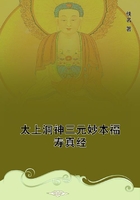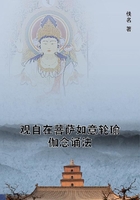Tastes differ widely. For ourselves, we must say that, however good the breakfasts at Daylesford may have been,--and we are assured that the tea was of the most aromatic flavour, and that neither tongue nor venison-pasty was wanting,--we should have thought the reckoning high if we had been forced to earn our repast by listening every day to a new madrigal or sonnet composed by our host. We are glad, however, that Mr. Gleig has preserved this little feature of character, though we think it by no means a beauty. It is good to be often reminded of the inconsistency of human nature, and to learn to look without wonder or disgust on the weaknesses which are found in the strongest minds. Dionysius in old times, Frederic in the last century, with capacity and vigour equal to the conduct of the greatest affairs, united all the little vanities and affectations of provincial bluestockings. These great examples may console the admirers of Hastings for the affliction of seeing him reduced to the level of the Hayleys and Sewards.
When Hastings had passed many years in retirement, and had long outlived the common age of men, he again became for a short time an object of general attention. In 1813 the charter of the East India Company was renewed; and much discussion about Indian affairs took place in Parliament. It was determined to examine witnesses at the bar of the Commons; and Hastings was ordered to attend. He had appeared at that bar once before. It was when he read his answer to the charges which Burke had laid on the table.
Since that time twenty-seven years had elapsed; public feeling had undergone a complete change; the nation had now forgotten his faults, and remembered only his services. The reappearance, too, of a man who had been among the most distinguished of a generation that had passed away, who now belonged to history, and who seemed to have risen from the dead, could not but produce a solemn and pathetic effect. The Commons received him with acclamations, ordered a chair to be set for him, and, when he retired, rose and uncovered. There were, indeed, a few who did not sympathise with the general feeling. One or two of the managers of the impeachment were present. They sate in the same seats which they had occupied when they had been thanked for the services which they had rendered in Westminster Hall: for, by the courtesy of the House, a member who has been thanked in his place is considered as having a right always to occupy that place.
These gentlemen were not disposed to admit that they had employed several of the best years of their lives in persecuting an innocent man. They accordingly kept their seats, and pulled their hats over their brows; but the exceptions only made the prevailing enthusiasm more remarkable. The Lords received the old man with similar tokens of respect. The University of Oxford conferred on him the degree of Doctor of Laws; and, in the Sheldonian Theatre, the undergraduates welcomed him with tumultuous cheering.
These marks of public esteem were soon followed by marks of royal favour. Hastings was sworn of the Privy Council, and was admitted to a long private audience of the Prince Regent, who treated him very graciously. When the Emperor of Russia and the King of Prussia visited England, Hastings appeared in their train both at Oxford and in the Guildhall of London, and, though surrounded by a crowd of princes and great warriors, was everywhere received with marks of respect and admiration. He was presented by the Prince Regent both to Alexander and to Frederic William; and his Royal Highness went so far as to declare in public that honours far higher than a seat in the Privy Council were due, and would soon he paid, to the man who had saved the British dominions in Asia. Hastings now confidently expected a peerage; but, from some unexplained cause, he was again disappointed.
He lived about four years longer, in the enjoyment of good spirits, of faculties not impaired to any painful or degrading extent, and of health such as is rarely enjoyed by those who attain such an age. At length, on the twenty-second of August, 1818, in the eighty-sixth year of his age, he met death with the same tranquil and decorous fortitude which he had opposed to all the trials of his various and eventful life.
With all his faults,--and they were neither few nor small--only one cemetery was worthy to contain his remains. In that temple of silence and reconciliation where the enmities of twenty generations lie buried, in the Great Abbey which has during many ages afforded a quiet resting-place to those whose minds and bodies have been shattered by the contentions of the Great Hall, the dust of the illustrious accused should have mingled with the dust of the illustrious accusers. This was not to be. Yet the place of interment was not ill chosen. Behind the chancel of the parish church of Daylesford, in earth which already held the bones of many chiefs of the house of Hastings, was laid the coffin of the greatest man who has ever borne that ancient and widely extended name. On that very spot probably, four-score years before, the little Warren, meanly clad and scantily fed, had played with the children of ploughmen. Even then his young mind had revolved plans which might be called romantic. Yet, however romantic, it is not likely that they had been so strange as the truth. Not only had the poor orphan retrieved the fallen fortunes of his line--not only had he repurchased the old lands, and rebuilt the old dwelling--he had preserved and extended an empire. He had founded a polity. He had administered government and war with more than the capacity of Richelieu. He had patronised learning with the judicious liberality of Cosmo. He had been attacked by the most formidable combination of enemies that ever sought the destruction of a single victim; and over that combination, after a struggle of ten years, he had triumphed. He had at length gone down to his grave in the fulness of age, in peace, after so many troubles, in honour, after so much obloquy.
Those who look on his character without favour or malevolence will pronounce that, in the two great elements of all social virtue, in respect for the rights of others, and in sympathy for the sufferings of others, he was deficient. His principles were somewhat lax. His heart was somewhat hard. But though we cannot with truth describe him either as a righteous or as a merciful ruler, we cannot regard without admiration the amplitude and fertility of his intellect, his rare talents for command, for administration, and for controversy, his dauntless courage, his honourable poverty, his fervent zeal for the interests of the State, his noble equanimity, tried by both extremes of fortune, and never disturbed by either.















